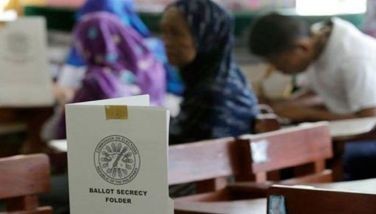ASEAN trade integration to affect local farmers — Agriculture exec
CEBU, Philippines - Local farmers and traders in Central Visayas would be directly affected by the full-blown implementation of the ASEAN Economic Integration next year, an official of the Department of Agriculture said.
Bienvenido Acabal Jr., Agricultural Center Chief III of DA-7’s Regional Crop Protection Center, said none of the farmers here are GAP (Good Agricultural Practice) accredited, which means they cannot export goods to other country or even sell products in malls.
The produce without GAP certificate can only be sold in local and public markets, he added.
“This entails extensive competition. It is somehow hard for us to compete with other countries and those with GAP certification,” he said.
Jose Mari Miranda, vice president of the National Federation of Sugarcane Planters Inc., earlier said the sugar industry in Central Visayas will also be put in grave risk with the ASEAN trade integration implementation on January 1, 2016.
He said the marginal farmers’ productivity cannot compete with Thailand’s more efficient, subsidized farmers. Thailand is reportedly the country’s prime competitor and the source of majority of the smuggled sugar that enters the Philippines.
The country produces about 2.2 million metric tons of sugar every year, about two million MT of which goes to domestic consumption while 136,000 MT is exported to the US and the rest are exported to the world market.
In Central Visayas, sugarcane farming is about 450,000 hectares, bulk of which is found in Negros Island.
“…for the farmers, we must consolidate our farms to maximize the advantages of economies of scale, mechanize our operations and reduce our cost of production which is presently uncompetitive,” Miranda said.
“One of the production shortfalls is associated with low farm productivity and slow expansion of areas planted for sugarcane,” he added.
While the ASEAN Integration is expected to level the playing field among industries in the region, he said it is also expected that Philippine firms should brace for an intense competition with their ASEAN counterparts.
Miranda added that an intense competition will therefore raise the bar for innovation, quality and productivity, which will enable businesses to compete head on with other players.
Gerry Avila, chief of the Agribusiness and Marketing Assistance Division (AMAD) of DA-7, admitted that it would be a big challenge for the farmers in the region, especially that GAP certification is needed.
He, however, believes that locals could still compete in ASEAN Integration through helping farmers in providing products in accordance to the standard needed.
“Through this, we will have a free flow of goods, services, investments and capital which will benefit our farmers,” he said.
He said production cost is eyed to increase with GAP’s codes, standard and regulations and it is expected to boost investments, job creation, and incomes in the region.
IEC and training
To help the local farmers, DA is conducting an introductory course on GAP all over the region.
Acabal said 30 out of 50 set trainings were conducted.
Parts of the training are the information education on ASEAN Integration and on how to acquire GAP.
He said DA has a group for pre-inspection, after which the central office is informed for final assessment and approval of accreditation.
Fertilizers used and kind of cultural management are part of the pre-inspection.
There are only 18 GAP-accredited companies in Luzon and Mindanao.
ASEAN GAP is a regional standard to prevent the risks associated with production, harvesting and post-harvest handling of fresh fruits and vegetables and to facilitate their trade within and beyond the region. It covers food safety, environmental management, worker health, safety and welfare and produce quality.
The primary goal of GAP is to produce safe and quality products hence GAP certification becomes a requirement in trading between ASEAN countries, such as Philippines, Thailand, Brunei Darussalam, Cambodia, Indonesia, Laos, Malaysia, Myanmar, Singapore, and Vietnam. — (FREEMAN)
- Latest
























